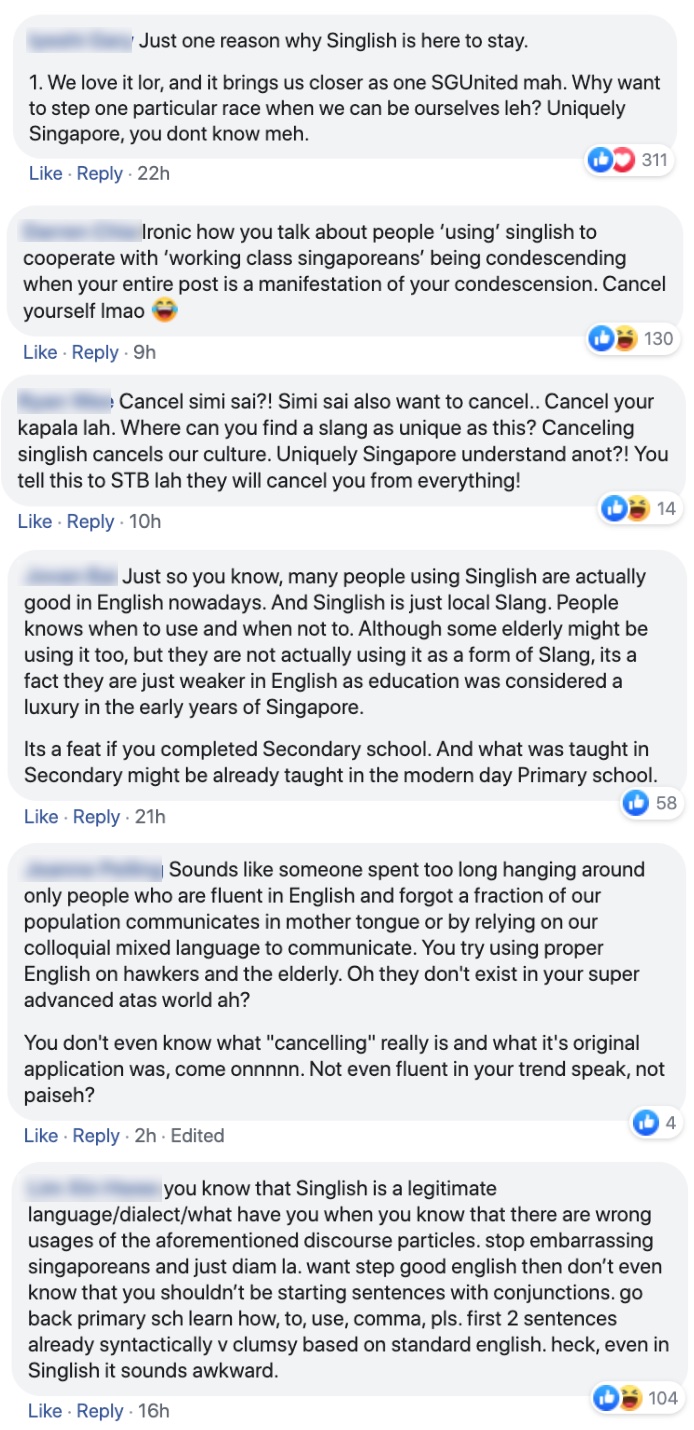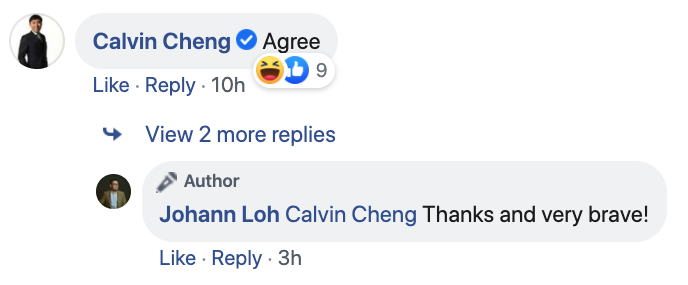English language tuition centre founder's call to abolish Singlish strikes a nerve with Singaporeans


Writer and founder of an English language tuition centre took to Facebook last Friday (July 24) to lay out several arguments on why Singlish — the colloquial patois of Singaporeans — needs to be, in his opinion, “cancelled”.
Naturally, not all agreed with Johann Loh’s perspective and they made it clear through hundreds of comments and shares of his post.
Loh listed eight reasons to quash Singlish from our lexicon, most of which related to raising the national culture above the condescension and juvenile humour he associates with the vernacular.
As the founder of Academia English & Writing Centre (and as someone who graduated from Princeton University among other academic achievements), Loh took aim at Singlish’s roots in “bad English”.
“It’s a mausoleum to our former inability to master English and in many respects, an extended satire of our former shame,” he argued, stating that particles like “lah” and “lor” are “various sounds and gestures to replace complex vocabulary”.
Loh also contended that the usage of Singlish can be “manipulative” if employed as a tool by elite Singaporeans to perform solidarity with working-class Singaporeans.
“It reifies and reinforces class structures at the level of language itself. It is also condescending,” he wrote.
“It is metaphorically and literally a form of doublespeak. It hides class differences and social inequality under a shroud of false camaraderie.”
Loh pointed out that Singlish is often exaggerated for comedic effect, and that it’s “not really that funny” when it mocks the mannerisms of the economically disadvantaged.
“If Singaporean culture is so impoverished that it is fundamentally dependent upon the continued performance of historical and class vulnerabilities, then our vision of what Singaporean culture constitutes needs to be reformulated and move forward in a more wholesome manner,” he concluded.
[embed]https://www.facebook.com/103083197920567/posts/172824647613088[/embed]
Judging from the hundreds of shares, comments, and reactions the post garnered, the call to abolish Singlish clearly struck a nerve.
In both Singlish and the Queen’s English, commenters essentially asked Loh: Why you so like that?

Loh did find support from someone high-profile: former Nominated Member of Parliament and regular social commentator Calvin Cheng.

Of course, Loh wouldn’t be the first to have attempted to excise the usage of Singlish. Though many Singaporeans proudly identify with a creole to call their own — a unique hodgepodge of our four official languages and other dialects — the government has actively tried to counter the usage of Singlish with a campaign called the Speak Good English Movement since 2000.
“Poor English reflects badly on us and makes us seem less intelligent or competent,” noted then-Prime Minister Goh Chok Tong at the launch of the Speak Good English Movement in 2000.
“The ability to speak good English is a distinct advantage in terms of doing business and communicating with the world. This is especially important for a hub city and an open economy like ours. If we speak a corrupted form of English that is not understood by others, we will lose a key competitive advantage.”
ilyas@asiaone.com